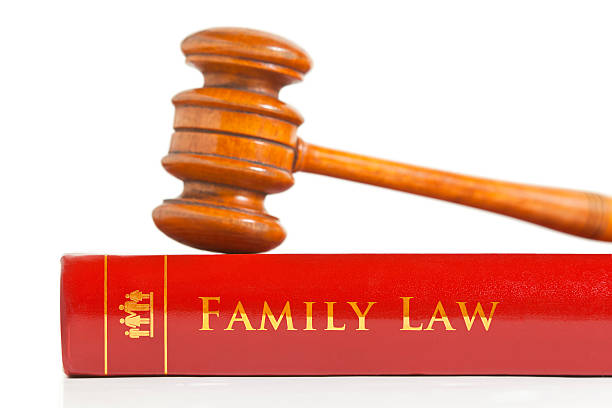What are the general rules of Family Law proceedings? Part V, Division 3, Section 42 to Section 47 provides the rules of Family Law proceedings. This article discusses the rules of Family Law proceedings.
Section 42: Law To Be Applied
Under Section 42, the jurisdiction conferred on a court by this Act shall be exercised in accordance with this Act and the applicable Rules of Court.
Where it would be in accordance with the common law rules of private international law to apply the laws of any country or place, the court shall, subject to the provisions of the Marriage Act 1961 , apply the laws of that country or place.
Section 43: Principles to Be Applied by Courts
Under Section 43, a court exercising jurisdiction under the Act must have regard to:
- the need to preserve and protect the institution of marriage as the union of 2 people to the exclusion of all others voluntarily entered into for life,
- the need to give the widest possible protection and assistance to the family as the natural and fundamental group unit of society, particularly while it is responsible for the care and education of dependent children,
- the need to protect the rights of children and to promote their welfare,
- the need to ensure protection from family violence, and
- the means available for assisting parties to a marriage to consider reconciliation or the improvement of their relationship to each other and to their children.
Section 44: Institution of Proceedings
Under Section 44, except as otherwise prescribed under regulations, proceedings under the Act shall be instituted by application.
Proceedings in Relation to Marriages
Section 44 also provides that proceedings for a divorce order or a decree of nullity of marriage may be instituted by either party to the marriage or jointly by both parties.

Limitation on Applications for Divorce Orders Within 2 Years of Marriage
An application for a divorce order in relation to a marriage shall not be filed within the period of 2 years after the date of the marriage unless there is filed with the application a certificate stating that the parties to the marriage have considered a reconciliation with the assistance of a specified person, who is:
- a family counsellor,
- an individual or an organisation nominated for the parties by a family consultant, or
- an individual or an organisation nominated for the parties by an appropriately qualified officer of the court.
The specified person or representative of the organisation must sign the certificate. Furthermore, if the court is satisfied that there are special circumstances by reason of which the hearing of an application for a divorce order in relation to a marriage should proceed notwithstanding that the parties have not considered a reconciliation, the court may:
- if the application has not been filed–give leave for the application to be filed, or
- if the application has been filed–at any time before or during the hearing of the application, declare that it is so satisfied.
Section 44 also provides for rules pertaining to the limitation on applications relating to certain maintenance and property proceedings. For instance, for proceedings in relation to de facto relationships, a party to a de facto relationship may apply for a maintenance order or declaration of interests in property only if:
- the application is made within the period of:
- 2 years after the end of the de facto relationship, or
- 12 months after a financial agreement between the parties to the de facto relationship was set aside, or found to be invalid
- both parties to the de facto relationship consent to the application.
Section 44A: Proceedings for Divorce Order
Under Section 44A, regulations may provide that proceedings for a divorce order may not be instituted in, or transferred to, a court of summary jurisdiction other than a prescribed court.
Section 45: Stay and Transfer of Proceedings
Under Section 45, where there pending proceedings that have been instituted under the Act and it appears that other proceedings that have been instituted in relation to the same marriage or void marriage or the same matter pending in another court, the Court may stay the first proceedings for such time as it considers appropriate or may dismiss the proceedings.
Section 45A: Summary Decrees
No reasonable prospect of successfully defending proceedings
Under Section 45A, the court may make a decree for one party against another in relation to the whole or any part of proceedings if:
- the first party is prosecuting the proceedings or that part of the proceedings, and
- the court is satisfied that the other party has no reasonable prospect of successfully defending the proceedings or that part of the proceedings.
No reasonable prospect of successfully prosecuting proceedings
The court may make a decree for one party against another in relation to the whole or any part of a proceedings if:
- the first party is defending the proceedings or that part of the proceedings, and
- the court is satisfied that the other party has no reasonable prospect of successfully prosecuting the proceedings or that part of the proceedings.
When there is no reasonable prospect of success
A defence or proceedings or part of proceedings need not be hopeless or bound to fail to have no reasonable prospect of success.
Proceedings that are frivolous, vexatious or an abuse of process
The court may dismiss all or part of proceedings at any stage if it is satisfied that the proceedings or part is frivolous, vexatious or an abuse of process.
To avoid doubt, proceedings or a part of proceedings are not frivolous, vexatious or an abuse of process merely because an application relating to the proceedings or the part is made and later withdrawn.
Section 46: Transfer of Proceedings From Court of Summary Jurisdiction in Certain Cases
Section 46 discusses rules if proceedings are instituted in or transferred to a court of summary jurisdiction in a State or Territory, in relation to property of a total value exceeding the amount referred to in Section 46A (discussed below).
If the respondent seeks an order different from that sought in the application, the court must, before proceeding to hear and determine the proceedings, inform the parties that, unless each of them consents to the court hearing and determining the proceedings, the court is required to transfer the proceedings to:
- the Federal Circuit and Family Court of Australia (Division 2),
- a Family Court of a State, or
- the Supreme Court of a State or Territory
Section 46A: Prescribing Value of Property
Under Section 46A, for the purposes of Section 46, the amount is:
- $20,000, or
- if a higher amount is prescribed by regulations for the State or Territory in which the court of summary jurisdiction referred to in that Section is located–that higher amount.
A higher amount may be prescribed by referring to the jurisdiction conferred on a court of summary jurisdiction under a law of the State or Territory, as in force from time to time.
Section 47: Courts To Act in Aid of Each Other
Under Section 47, all courts having jurisdiction under the Act shall severally act in aid of and be auxiliary to each other in all matters under the Act.

Seeking Legal Advice on Rules of Family Law Proceedings
Rules of Family Law proceedings can be very technical. Thus, we highly advise you to seek legal advice on matters pertaining to the rules of Family Law proceedings.
JB Solicitors has a leading team of expert family lawyers that can help with your case. We can discuss the rules of Family Law proceedings involved in your case. We can advise you on your rights pertaining to the rules of Family Law proceedings.
Do you have any more queries regarding the rules of Family Law proceedings? Contact us today.
